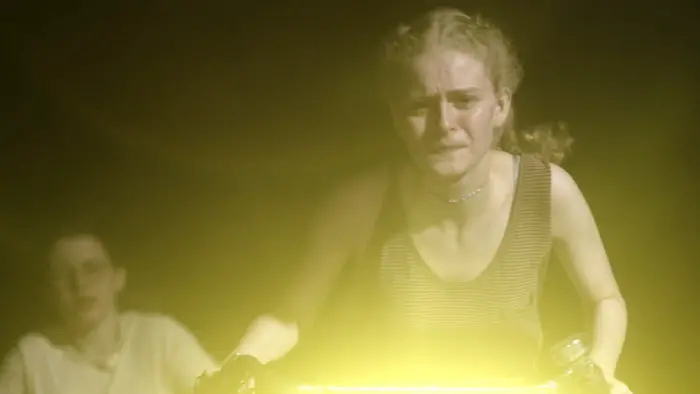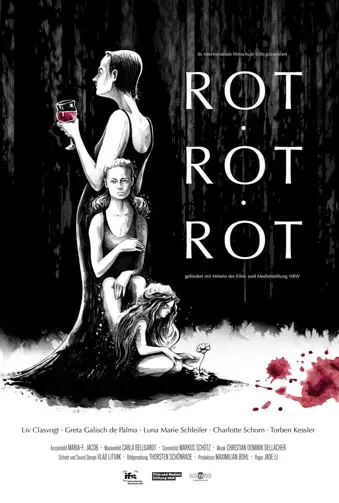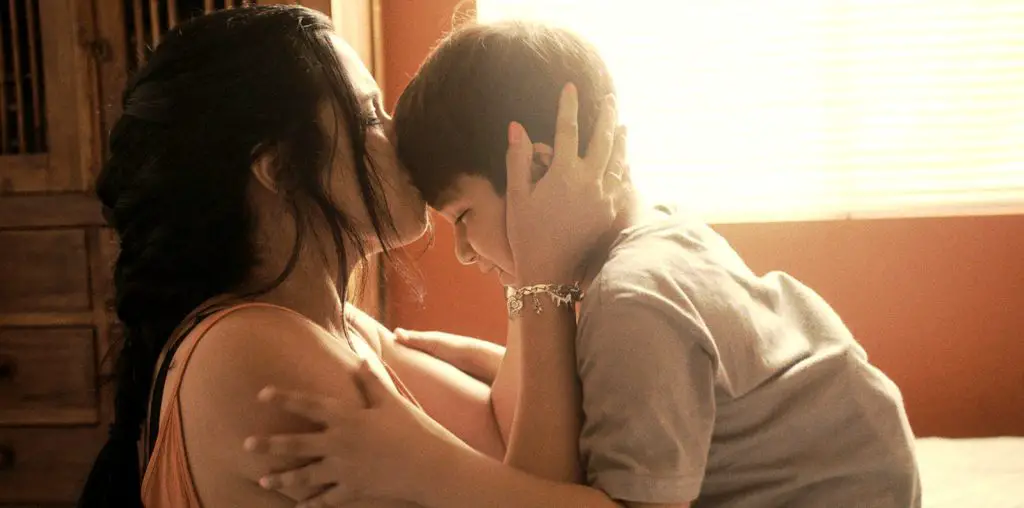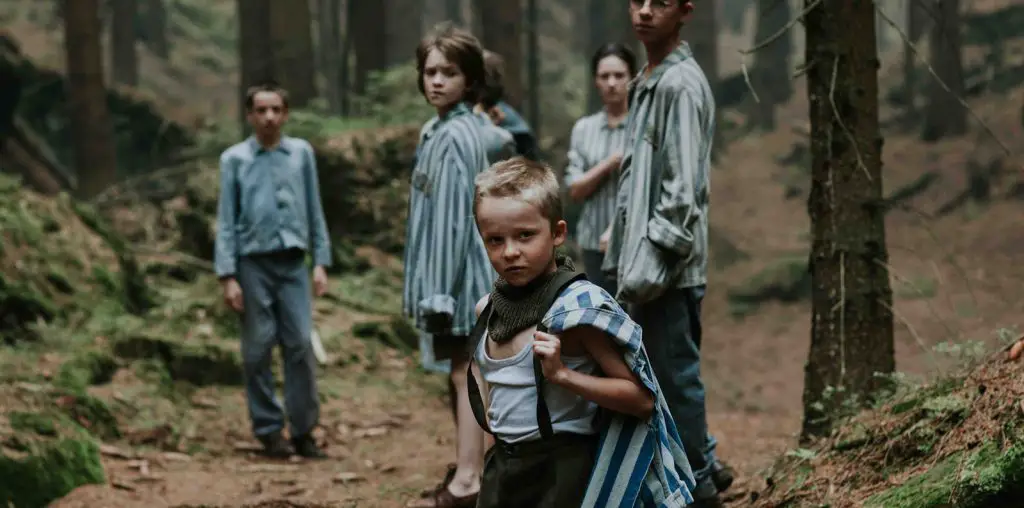
Red Red Red is a German short about feminine struggles. A young girl named Felicia (Liv Clasvogt) is experiencing the sexual changes of puberty while her family is being torn apart. Her younger sister is losing her first tooth while the mother of the family faces depression, spending most of her time drinking alcohol to soothe her pains.
The movie revolves around these three generations of women and uses them to reference the most significant stages of life: childhood, puberty, and adulthood. Felicia is filled with anger and holds her mother, Vera (Greta Galisch de Palma), responsible for what is happening to the family. On the other side of the coin, Vera is a victim of her husband’s behavior. She takes the blame to keep her children safe from the heartbreaking truths of adulthood. The only thing that is keeping this family together is the kindness of Felicia’s little sister.

“…Felicia is filled with anger and holds her mother, Vera, responsible…”
Also, the interaction between Felicia and her mother is limited. Clasvogt and Galisch de Palma manage to demonstrate the tension between these characters quite well. The symbolism used in Red Red Red also keeps the characters and their stories linked together. One of the main themes of writer/ director Jade Li’s short is the loss of innocence. The daisy flower that is present all throughout symbolizes that. Daisies are also the flowers of the Nordic goddess Freya; thus, another metaphor for femininity is uncovered.
Red Red Red (aka Rot Rot Rot in its original language) clearly demonstrates the difficulties of womanhood; especially with all the expectations and responsibilities imposed by society. This short film asks only for love and appreciation because, just as we witness in the very last scene, compassion can make miracles happen.

"…compassion can make miracles happen."


